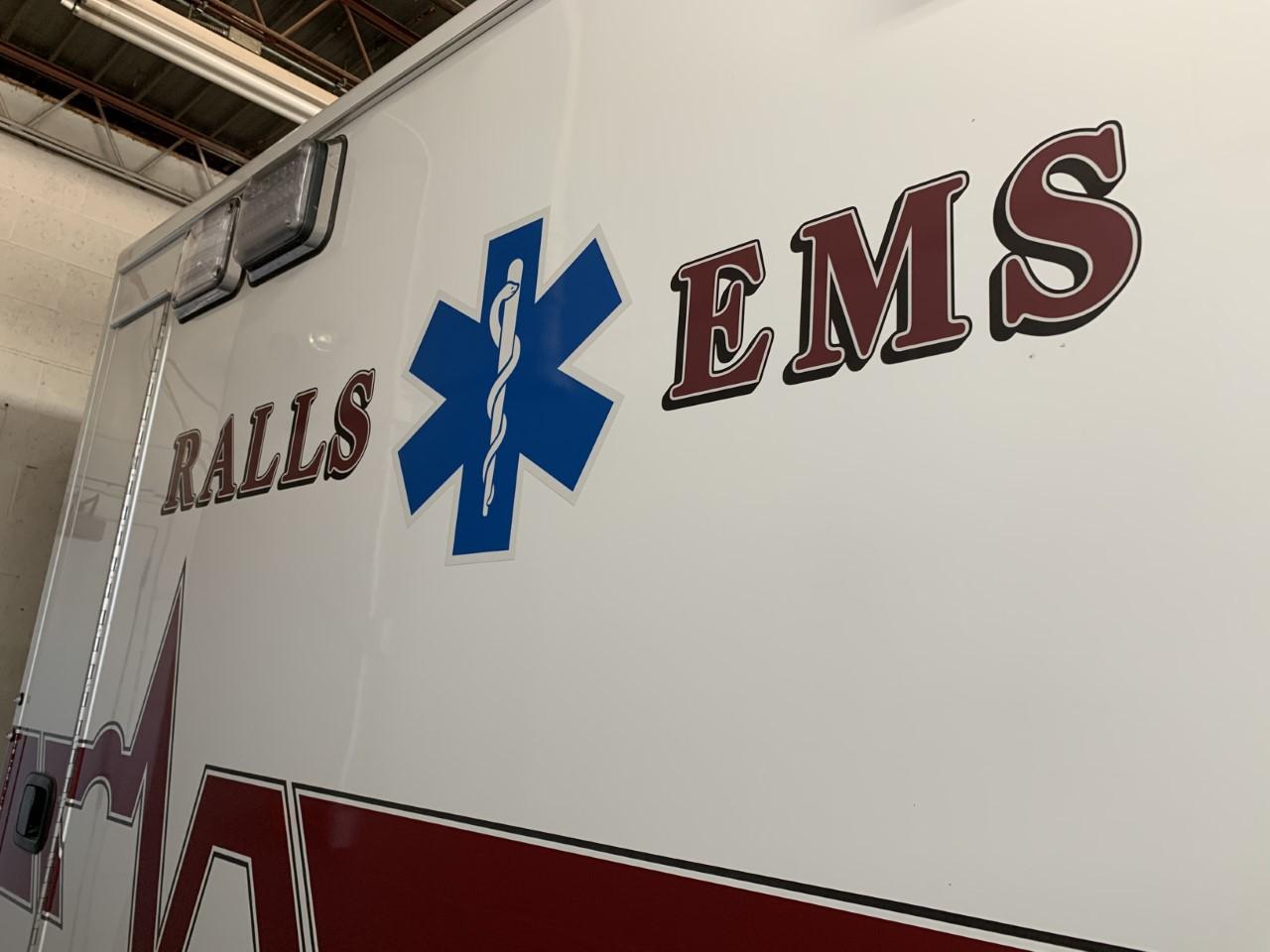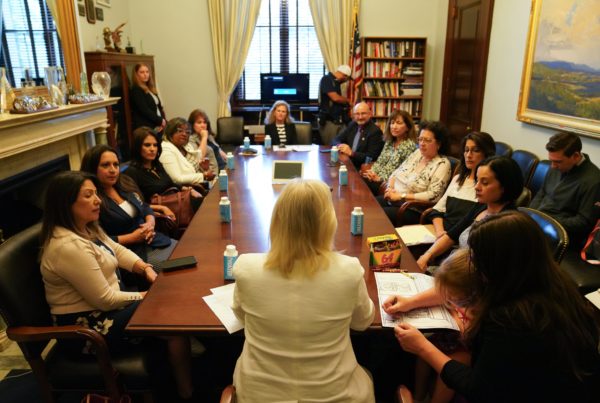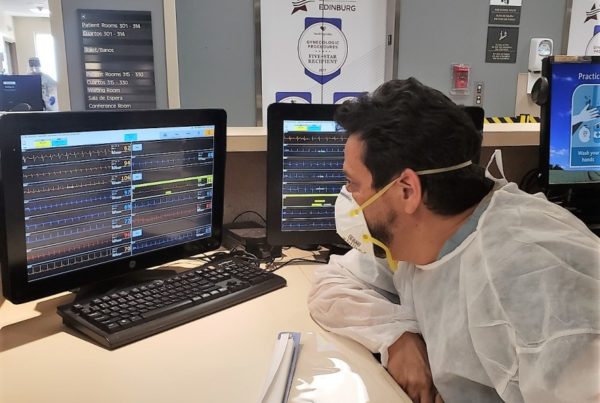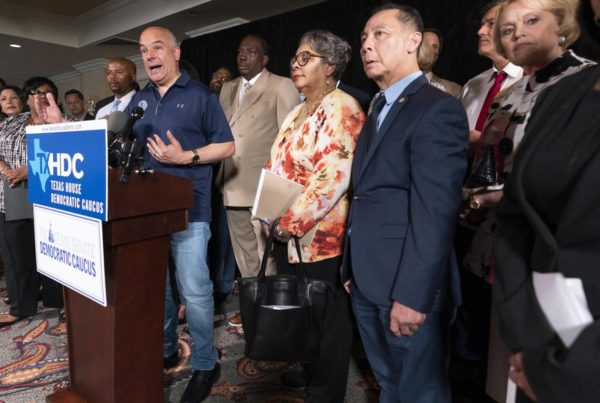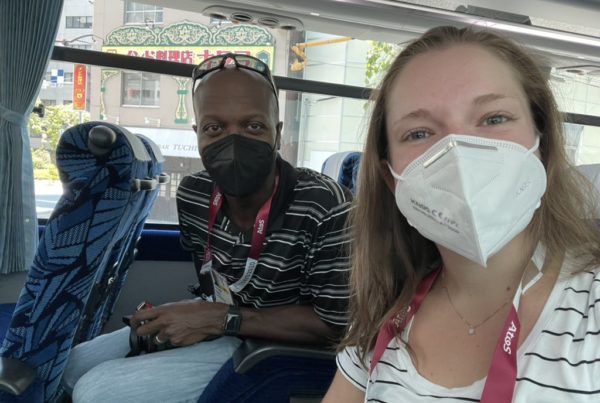On a Tuesday evening earlier this month, outside Ralls’ City Hall, nearly two dozen residents waited in the 90-degree Texas heat. For two hours, they anxiously awaited word from their city leaders on whether they will keep their Emergency Medical Service (EMS)—the city’s last-standing lifeline following a string of budget cuts.
The rural town is in a tight bind that has become a common reality in other rural Texas communities where access to healthcare has been crippled. Crosbyton Clinic Hospital is about nine miles away with only two beds, and Ralls is between Crosbyton and Lubbock. The clinic is mainly used to stabilize patients before transferring them to Lubbock, which is another 30 miles, and a drive back through Ralls, away.
Crosby County has less than 6,000 residents, and according to data from American Public Media Research Lab, 19% of their residents are uninsured. The 2019 Census shows that 19% of the county’s residents are 65-years-old or older.
Recently, the Ralls City Council considered closing the EMS service since it’s been operating over budget, with little revenue being brought in. During a city meeting earlier this month, residents expressed how important the service was to their community. Suddenly, without notice, the EMS was temporarily shut down last week.
Residents have already seen the effects of that choice.
“The day after we suspended our ambulance, my mother fell,” said Kathylynn Sedgwick, a Ralls native who takes care of her 80-year-old mother. She described the situation in detail during a public hearing this week.
“She cut her head enough to get seven staples,” said Sedgwick. “It broke my heart, as someone that’s been here my whole life. So, I loaded her up and we went to the emergency room in Lubbock.”
Sarah Jamerson was the director of Ralls EMS, but resigned last month. She grew up in Ralls, and her grandmother started the service, so she jumped at the chance to come back and help keep the station open last year.
But the budget is tight – the City of Ralls operates the EMS service and Jamerson said $40,000 is allocated to the station from the city council, but that it’s not enough to keep the station running.
“The citizens of this city’s health and welfare is worth more than the $40,000 that’s in our budget right now,” said Jamerson during the meeting.
“I feel betrayed,” Jamerson said. “I did everything I could to save it, but at the end of the day, I couldn’t do it by myself and I definitely couldn’t do it with a council that’s going to stab me in the back while I’m trying to.”
Texas Tech Public Media has spoken with Jamerson several times while working on a project with Texas Newsroom and the PBS series “Frontline” that focuses on rural health care in the state.
In May, she explained that the EMS service operates in the red due to a lack of revenue and growing expenses for equipment and training.
“The thing with EMS, as it grows as an industry, it becomes inherently more expensive to do it,” explained Jamerson, “and the revenue stream does not keep up and evolve as fast as the expenses do.”
Jamerson added, “The training and personnel get more expensive, the equipment and requirements get more expensive and the ambulances cost more. And gas gets more expensive too, but reimbursement rates don’t.”
It doesn’t help, Jamerson said, that the pay being offered to potential employees is lower than in neighboring towns, such as Idalou where they’re offering paramedics and advanced EMTs $3 an hour more than in Ralls. In Ralls, the pay ranges between $8 to $10 an hour and taxes aren’t withheld.
After she resigned, four other EMS employees quit the station. Chris Pickering was named the interim EMS director, but the financing issues didn’t go away. He resigned on July 9.
“When the last four people who quit have stated it’s pay and taxes,” said Jamerson during the meeting, “and we say you’ve got to fix the pay and the answer is a categorical no, that’s absolutely nothing to do with me or with Chris [Pickering]. That has to do with the people who make decisions on what the budget is in this room.”
Mayor Don Hamilton reminded everyone at the start of the meeting that the city council was not obligated to respond or answer to any of the comments made that night, so little was said by the council that night.
With Ralls EMS closed, Crosbyton EMS is the only ambulance service in the county. It only has two trucks. Pickering addressed the city leaders with his main concern. “Crosbyton is under no obligation to answer 911 calls to Ralls and Lorenzo.”
“They can’t operate on the budget they have, and continue to run this whole county,” he continued. “They’re doing everything they can because they love the citizens in this community, but there is quickly approaching a day where y’all could call 911 and nobody answers.”
Pickering said he was “beating his head against the wall” trying to figure out how to attract new employees and fix the personnel problem. The only solution he could come up with is offering better pay—something that would require reallocating funds from other areas of the budget.
“If Ralls folds, it folds the whole system,” said Pickering. “And the ultimate suffering is by everyone in this room.”
Steve Beck, the CEO of Crosbyton Clinic Hospital, said that Crosbyton EMS faces the same staffing issue and also serves as a transport service for patients from Crosbyton to Lubbock, so it’s not always readily available at a moment’s notice.
“If you have a crew that’s transferring a patient into Lubbock, you have a good 30-45 minutes to travel in and then go through the process to hand off that patient,” Beck explained. “Then they have to turn around and drive back to Crosbyton, so you’re talking about a two-hour time span. When that happens, that county is now without that service.”
“What’s more important – the budget, or our citizens,?” Jamerson asked. “My wife and I have already had the serious conversation of [whether or not] we can feel safe living in a community that doesn’t have EMS.”
She comes from a long line of Ralls residents—seven generations total. While her family has dedicated their lives to the health and safety of their hometown through the EMS, she’s now left with the thought: “I don’t know that it’s safe for us to be here anymore.”
When the City Hall doors reopened two hours later, Mayor Don Hamilton and the Council accepted the resignation of Chris Pickering as interim EMS director and voted on Bobby Beene as his replacement. Within two minutes of being called back to session, the meeting was adjourned. Residents were left confused.
“So are the [EMS] doors open?” Jamerson asked. One council member shrugged her shoulders, while others provided unclear responses.
Nearly two weeks after the meeting, Kim Perez, the Ralls city administrator, said Beene has put together a new crew for the station and it is currently reopened.
Have a news tip? Email Jayme Lozano at jaymloza@ttu.edu. Follow her reporting on Twitter @jayme_lozano.


